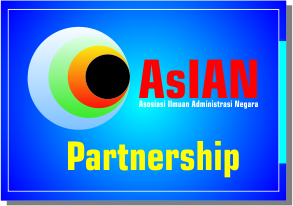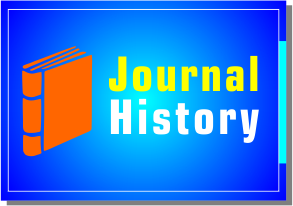Advokasi Stockpile Batubara Ilegal Oleh Walhi di Kota Padang
DOI:
https://doi.org/10.31334/transparansi.v7i1.3657Keywords:
Advocacy, Coal Stockpile, WALHIAbstract
The coal industry in Indonesia is one of the most promising sectors, with trillions of rupiah in revenue each year. However, the rapid growth of this industry is not proportional to the risks it generates. Many coal companies still do not pay attention to their impact on the environment and society, such as the problem of illegal coal stockpiles. This illegal coal stockpile is a collection of coal that does not have official permission from the government to be mined, transported, and sold. This illegal practice can cause environmental and public health issues, such as air, soil, and water pollution, and potentially respiratory diseases and cancer. This research aims to explore and analyze the advocacy efforts undertaken by WALHI West Sumatra regarding the illegal coal stockpile conflict in Padang City. A qualitative approach with a case study was used in this research, applying the concept of advocacy developed by Sharma. Data were collected through interviews, observations, and documentation analysis. The results showed that WALHI West Sumatera had conducted various advocacy efforts, including investigations, socialization, education, campaigns, and legal advocacy to various related parties, such as the government, community, media, and business actors. As a result of these advocacy efforts, the Padang City Government has sealed several illegal coal stockpile operations. The Indonesian Ministry of Environment and Forestry is reviewing the case to take further steps to increase its authority in stockpile licensing. This study recommends that WALHI West Sumatera continue its advocacy efforts comprehensively while collaborating with various parties concerned about this environmental issue.References
Almog-Bar, M., & Schmid, H. (2014). Advocacy Activities of Nonprofit Human Service Organizations: A Critical Review. Nonprofit and Voluntary Sector Quarterly, 43(1), 11–35. https://doi.org/10.1177/0899764013483212
Ayu Rizky, P., & Mar’iyah, C. (2021). Advokasi Kebijakan RUU PKS: Analisis Pemberitaan Media Perempuan Magdalene.co dan Konde.co. TheJournalish: Social and Government, 2(2), 36–46. https://doi.org/10.55314/tsg.v2i2.143
Bulkeley, H. (2000). Discourse coalitions and the Australian climate change policy network. Environment and Planning C: Government and Policy, 18(6), 727–748. https://doi.org/10.1068/c9905j
Cohen, D. K., Moffitt, S. L., & Goldin, S. (2007). Policy and practice: The dilemma. American Journal of Education, 113(4), 515–548. https://doi.org/10.1086/518487
Darmayanti, E., Gunawan, P. I. K., & Alaydrus, A. (2017). Studi Tentang Advokasi Kasus Lubang Tambang Oleh Jaringan Advokasi Tambang (Jatam ) Kalimantan Timur. EJournal Ilmu Pemerintahan, 5(4), 1347–1360.
Iskandar, D. J. (2016). Advokasi Kebijakan Peningkatan Representasi Perempuan dalam Pergelutan Politik. Jurnal Ilmu Administrasi, 461–476.
M. Rudi Hartono. (2015). Tinjauan Yuridis Tanggungjawab. Legalitas, VII(2), 99–124.
Mosley, J. (2013). Recognizing new opportunities: Reconceptualizing policy advocacy in everyday organizational practice. Social Work (United States), 58(3), 231–239. https://doi.org/10.1093/sw/swt020
Mukherjee, I., & Howlett, M. (2015). Who is a stream? Epistemic communities, instrument constituencies and advocacy coalitions in public policy-making. Politics and Governance, 3(2), 65–75. https://doi.org/10.17645/pag.v3i2.290
Nelson, M. P., & Vucetich, J. A. (2009). On advocacy by environmental scientists: What, whether, why, and how. Conservation Biology, 23(5), 1090–1101. https://doi.org/10.1111/j.1523-1739.2009.01250.x
Nugroho, A. R., & Najicha, F. U. (2023). Pemenuhan Hak Asasi Manusia Atas Lingkungan Hidup Yang Sehat. Yustitia, 32, 108–121.
Qiolevu, V. S., & Lim, S. (2019). Stakeholder participation and advocacy coalitions for making sustainable Fiji mineral royalty policy. Sustainability (Switzerland), 11(3), 1–20. https://doi.org/10.3390/su11030797
Rahma, N. D., Rizka, Y., Nufus, W., Saraswati, N. A., & Chairani, S. (2022). Dampak Pertambangan Batu Bara Pada Kesehatan Lingkungan: A Systematic Review. Health Safety Environment Journal, 2(2), 1–19.
Roberts, J. L. (2022). Advocating to Put Policy in Place. Gifted Child Today, 45(4), 187–191. https://doi.org/10.1177/10762175221110941
Scott, J. M., & Rachlow, J. L. (2011). Refocusing the debate about advocacy. Conservation Biology, 25(1), 1–3. https://doi.org/10.1111/j.1523-1739.2010.01629.x
Sholihah, Q., & Widodo, M. A. (2008). Pembentukan radikal bebas akibat gangguan ritme sirkadian dan paparan debu batubara. Kesehatan Lingkungan, 4(2), 89–100.
Subhan, A. (2017). Jejaring Kebijakan Pengangkutan Batubara Di Provinsi Jambi Ditinjau Dari Perspektif Good Governance. CosmoGov, 1(1), 86. https://doi.org/10.24198/cosmogov.v1i1.11801
Sudarmo. (2008). Social Capital for Community Governance. Spirit Publik, 4(2), 101–112.
Wahyuni, N., Halawa, H. S., Fajri, H., & Meiwanda, G. (2023). Strategi Non-State Actor Dalam Membangun Opini Publik. Jurnal Kebijakan Publik, 14(1), 40. https://doi.org/10.31258/jkp.v14i1.8152
Wahyuni, N., Helmi, R. F., & Akmal, A. D. (2021). Advokasi Pembentukan Forum Anak Nagari. Abdi: Jurnal Pengabdian Dan Pemberdayaan Masyarakat, 3(2), 118–126. http://abdi.ppj.unp.ac.id/index.php/abdi/article/view/109
Wallack, L. (1999). The California violence prevention initiative: Advancing policy to ban Saturday night specials. Health Education and Behavior, 26(6), 841–858. https://doi.org/10.1177/109019819902600607
Weible, C. M., Ingold, K., Nohrstedt, D., Henry, A. D., & Jenkins-Smith, H. C. (2020). Sharpening Advocacy Coalitions. Policy Studies Journal, 48(4), 1054–1081. https://doi.org/10.1111/psj.12360
Yani, R. F., Asrinaldi, A., & Rahmadi, D. (2019). Peran Walhi Sumbar Dalam Investigasi Tambang Emas Ilegal Di Kota Padang. Jurnal Demokrasi Dan Politik Lokal, 1(1), 88–100. https://doi.org/10.25077/jdpl.1.1.88-100.2019
Downloads
Published
Issue
Section
License

This work is licensed under a Creative Commons Attribution-ShareAlike 4.0 International License
Please find the rights and licenses in Transparansi : Jurnal Ilmiah Ilmu Administrasi By submitting the article/manuscript of the article, the author(s) agree with this policy. No specific document sign-off is required.
- License
The commercial use of the article will be governed by the Creative Commons Attribution license as currently displayed on Creative Commons Attribution-ShareAlike 4.0 International License.
2. Author(s)' Warranties
The author warrants that the article is original, written by stated author(s), has not been published before, contains no unlawful statements, does not infringe the rights of others, is subject to copyright that is vested exclusively in the author and free of any third party rights, and that any necessary written permissions to quote from other sources have been obtained by the author(s).
3. User Rights
Transparansi : Jurnal Ilmiah Ilmu Administrasi spirit is to disseminate articles published are as free as possible. Under the Creative Commons license, Transparansi : Jurnal Ilmiah Ilmu Administrasi permits users to copy, distribute, display, and perform the work for non-commercial purposes only. Users will also need to attribute authors and Transparansi : Jurnal Ilmiah Ilmu Administrasi on distributing works in the journal and other media of publications.
4. Co-Authorship
If the article was jointly prepared by more than one author, any authors submitting the manuscript warrants that he/she has been authorized by all co-authors to be agreed on this copyright and license notice (agreement) on their behalf, and agrees to inform his/her co-authors of the terms of this policy. Transparansi : Jurnal Ilmiah Ilmu Administrasi will not be held liable for anything that may arise due to the author(s) internal dispute. Transparansi : Jurnal Ilmiah Ilmu Administrasi will only communicate with the corresponding author.
5. Miscellaneous
Transparansi : Jurnal Ilmiah Ilmu Administrasi will publish the article (or have it published) in the journal if the article’s editorial process is successfully completed. Transparansi : Jurnal Ilmiah Ilmu Administrasi editors may modify the article to a style of punctuation, spelling, capitalization, referencing and usage that deems appropriate. The author acknowledges that the article may be published so that it will be publicly accessible and such access will be free of charge for the readers as mentioned in point 3.
Every accepted manuscript should be accompanied by "Copyright Transfer Agreement"prior to the article publication.











